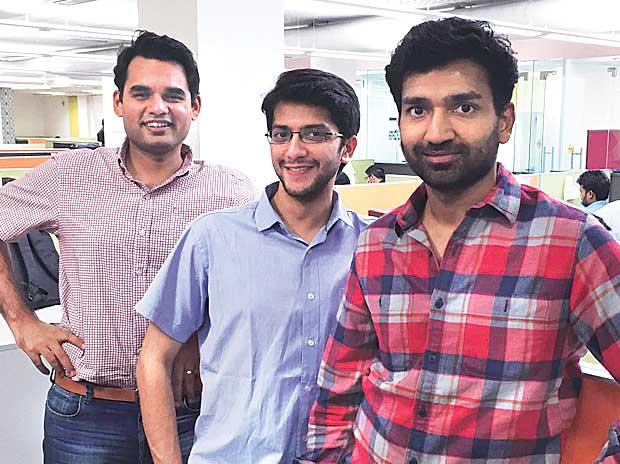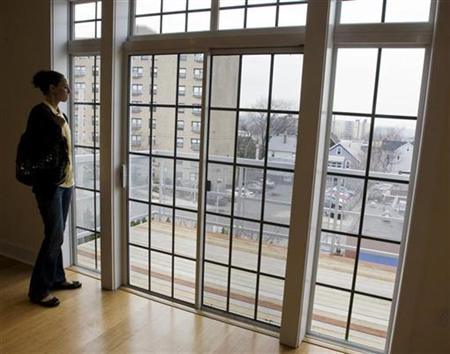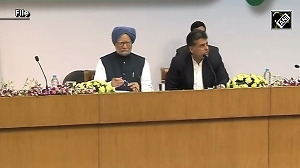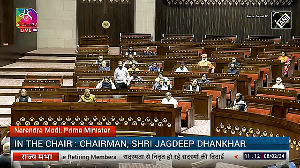With $10 million in a Series-A funding, Delhi-based UrbanClap is carving a niche in mobile local services.

Marketing professional Disha, 27, was at her wits' end - her wedding was in two days and the photographer had fallen sick.
At such short notice, no replacement was available. A friend suggested she download an app.
"Finding a professional for such jobs was difficult and usually happened through recommendations of friends and family," said Varun Khaitan, a founder of UrbanClap.
The former consultant at The Boston Consulting Group (BCG) added: "We thought we could disrupt this market."

Be it beauticians, cleaners, nutritionists, yoga instructors, tutors or caterers, UrbanClap says it can find you anyone you need.
The start-up was launched in October last year by Khaitan, along with Abhiraj Bhal, another former consultant at BCG, and Raghav Chandra, a former software engineer at Twitter.
Clap on mobile
Initially, the founders ran surveys across segments, such as food and delivery services. "Customers would tell us: 'We would like something like Zomato or TripAdvisor. Why must we call Justdial to find a service?'" recalled Khaitan.
Zomato is an online food and restaurant search engine; TripAdvisor, as its name suggests, provides advice to travellers on accommodation, fares or packages; Justdial is a search engine.

With mobile penetration increasing, the founders of UrbanClap felt it would be easy enough to get their product to customers.
"Nothing is organised (in the local services markets); day-to-day services need standardisation," said Mukul Singhal of SAIF Partners, one of the principal investors in UrbanClap.
The fragmentary nature of the market is the prime challenge.
Singhal added he was excited about UrbanClap because of its founders. "It will take them time to figure out the correct execution process of the service they are offering."
Business model
UrbanClap's business model is still a work in progress.
Given its traditionally fragmentary nature, the services market is largely driven by middlemen or intermediaries.
Both consumer and service professional are dependent on the middleman, who determine the cost of the service.
Usually, service professionals are paid less and the quality of service, too, is unsatisfactory.
Singhal said removing middleman will create a value chain, from which the business model can be derived. The business model will evolve depending on each category of service.
"We don't charge our professionals at present. So the thought of breaking even is still far. It's a free-to-use platform which we will monetise soon," said Khaitan.
Entry barriers
UrbanClap functions in a market where both merchants and customers need to be highly engaged.
"This is a classic marketplace: there is supply and demand, and you have to increase both," said Singhal.
If the number of service professionals exceeds the demand made by customers, the merchants will be disengaged.
On the other hand, if there are few professionals with high customer demand, consumers will be disillusioned.
Maintaining this see-saw balance to ensure both merchants and customers have a good experience on the platform is what UrbanClap will have to continually look at.
Besides this, Singhal added, the firm needs to work on what he calls "matching algorithms": are there sufficient numbers of merchants to carry out customers' requests at the time and place they want it?

"It takes time to create these 'matching algorithms' and you have to control the consumer experience. If UrbanClap can tackle these challenges while growing, it will be difficult for new entrants to get into the space," he said.
Challenges
The local services market in India presents a ripe opportunity for investors and entrepreneurs due to the low standardisation of services and pricing asymmetry.
Since local services are so fragmented particularly in terms of quality, it is difficult to determine a single measure on which to standardise services. Besides this, the pricing for each service even within a category differs vastly.
In addition to these, finding the right people to tackle these challenges is itself one of the biggest hurdles that UrbanClap has to overcome.

"It's easy to find people but keeping that in line with our pace is the challenge," says Khaitan.
Singhal says that raising capital is a challenge faced by most start-ups, but UrbanClap has been executing well so they have adequate capital.
He is not deterred by the difficulties the market poses. "Large opportunities are built on a difficult market. Fundamentally, more difficult the market, more excited I will be about it," says Singhal.
Road ahead
Having set up shop in Delhi, Bengaluru Mumbai and Chennai, UrbanClap plans to expand Tier I cities first, and then small towns.
In addition to location, the firm will look to expand its category offerings.
Singhal said the firm is now heavily focused on 10 categories and this can increase to 40.
The next step is to delve deeper into each category, "You have to make that one consumer you acquired come back to you again and again," he added. More the difficulty, more the value, said the investor.

While local services in the US are rather simple, in India, it is disorganised, and that is where the opportunity lies. "A messy market is a robust market."
Fact box
Inception: October 2014
Area of business: Mobile local services
Fund raising: Raised $10 mn in Series A funding in June; in early 2015, raised $1.6 mn in seed funding
Investors: SAIF Partners, Accel Partners, Kunal Bahl, Rohit Bansal - founders of Snapdeal .
Expert take
UrbanClap is helping consumers locate multiple professional services for fitness, beauty, coaching classes, etc.
These services are mostly provided at the residence, office or chosen venue of the consumer.
Earlier, JustDial, Google and word-of-mouth were the primary sources of finding these service providers.
They were not filling the gap completely. They did not help complete the cycle of obtaining information, rates and setting up an appointment.
We feel that UrbanClap is fulfilling this need in a significantly improved manner.
The market size for these services is $4-5 billion a year in India, out of which the addressable market via smartphones is currently around five per cent - $200 million.
Clearly, this is already a good market, with a possibility of growing at 20-30 per cent a year.
Globally, there is good endorsement of the model with Thumbtack building a large business, backed by Google Ventures, Sequoia and Tiger Global.
Also, this is not a very crowded market. But LocalOye, which is backed by Lightspeed and Tiger Global, offers some competition as does JustDial.
However, overall, UrbanClap is a good venture with a lot of promise of building a significant business and providing a strong return to investors.












 © 2024 Rediff.com -
© 2024 Rediff.com -